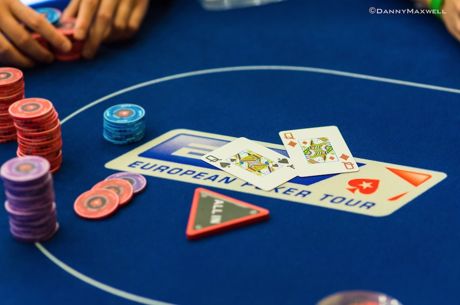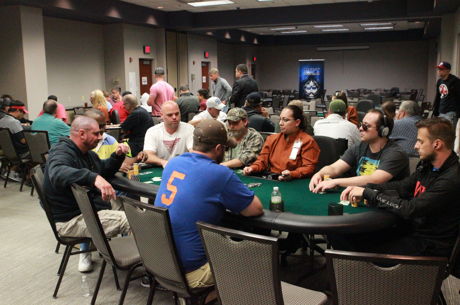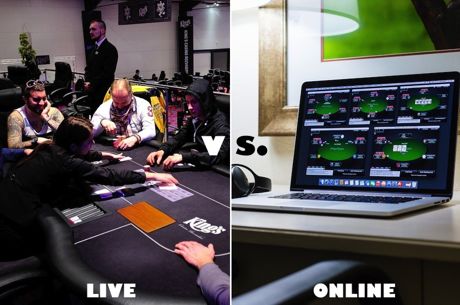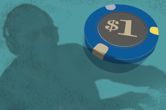5 Lessons: The Transition to Becoming a "Semi-Pro"
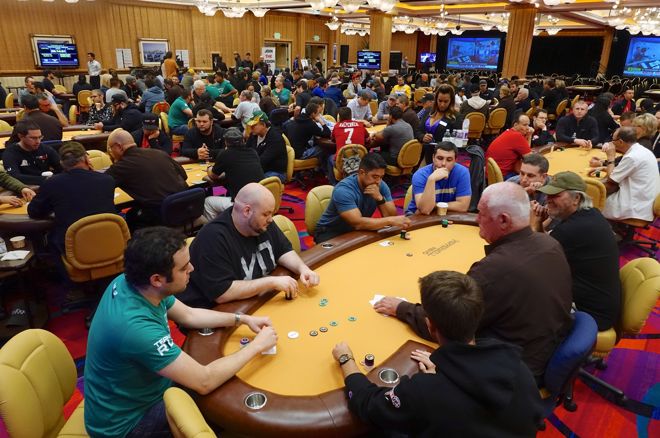
"Spumoni! Spumoni!"
This is the safe word Jackie Moon, played by Will Ferrell, yells in the 2008 comedy Semi-Pro when he is bitten by a bear as his attempt to wrestle with it goes horribly wrong. It's also the name of a type of ice cream, which happens to be a comfort food I used quite often to soothe the pain of being bitten by negative variance during my recent attempt to become a professional poker player.
Like Jackie, I finally cried uncle and admitted that the pain is more than I can take. I decided that being a full-time professional poker player is not for me. Instead, I decided to try my hand at being a semi-professional poker player. Here are five lessons I learned from Jackie Moon and his pursuit of glory in Semi-Pro.
Lesson #1: Follow Your Dream
In the trailer for Semi-Pro, an interviewer asks Jackie how he learned to play basketball. His response is "I saw it on TV a couple times and I thought, I can do that."
This is exactly how I, and many like me, got into poker. In hindsight, poker has not been as easy as the guys on TV make it look. TV doesn't show the downswings. Sure, we see the suck outs, but the heroes always seem to bounce back and pony up another $10K buy-in for the next episode. Unlike your favorite TV player, when I went busto, I got a job.
Just because I decided to go back to a regular job does not mean I can't continue to follow my dream. "Dreams sometimes become nightmares" is a line from the movie that ironically describes the first six months of poker for me in 2016. This was because I was depending on poker money as my primary source of income during my downswing. I put a band aid on this problem by getting backers, but when I lost their money, I felt even worse. When I made money for them, I felt great but was still broke after distributing the vast majority of the winnings. It was a lose-lose situation.
By going back to work, I can use my disposable income to play on my own dime. If I win, I get to keep all of the profit. If I lose, I can't play poker anymore... well, at least not until the next paycheck. Going semi-pro seems like a way to follow my dream without it becoming a nightmare.
Lesson #2: Don't Put All Your Eggs in One Basket
In the film, Jackie Moon is a former singer who decides to become a professional basketball player, but he never puts all of his eggs in one basket. Even though he wants to play ball, he continues to sing before and after games. He's also the owner, coach, and promoter for the team. In other words, if he couldn't make it as a player, he still had multiple sources of income.
I was a former teacher who decided to become a professional poker player. When poker took a turn for the worse, I started doing a little tutoring and substituting here and there. Unlike Jackie, I was still depending on poker for most of my income. Now I believe it is best to depend on the non-poker sources primarily and consider any poker income to be icing on the cake. This is what it means to be a semi-pro. It seems like a much easier way to live.
For me, the beauty of this approach is that this hybrid is much better than either extreme. I was not happy as a full-time teacher, but I was not happy as a full-time poker player either. By playing poker for a smaller portion of my income, I can enjoy the game without the stress. Because I don't depend 100% on my income from work, I have more flexibility in choosing which assignments I take as opposed to staying in a dead end position that pays well. The key is to find a comfortable mix of poker and work and maybe even sell some nachos on the side like Jackie.
Lesson 3: Promote Yourself
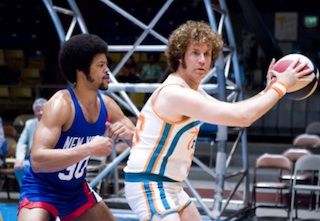
Jackie Moon is a good singer and an okay basketball player, but he's a master promoter. When he needs to sell tickets to a game, he gives the fans a show they couldn't miss by agreeing to wrestle a bear after the game. I already explained how this doesn't go as planned, but you have to give the guy an "A" for effort. Even though he gets mauled, he did sell the tickets.
As a poker player, I can do more to promote myself. I'm not about to fight a bear any time soon, but my appearances on podcasts, my Twitch stream, and my presence on social media helps me to get more writing gigs. It also helps to be somewhat known when I am looking to sell action.
If I spend less time actually playing poker, I can do more of these things to increase my public profile. Shameless self-promotion leads to more variance-free income, which in turn leads to happier semi-pro poker players.
Lesson 4: Try New Strategies
When basketball doesn't go well for Jackie, he's not afraid to try out some hare-brained ideas to improve his team's play. Once he decides to have his players wear eye-liner to frighten the opposing team. When his team is losing badly in one game, he's knocked unconscious and has a dream about a brand new play called the alley-oop, which he then "invents" in this fictional tale. Who knows? Maybe the idea to try a cold four-bet bluff came to somebody in a dream.
As a professional poker player, I depended on tried and true strategies that I used to make my meager income. As a semi-pro, I can take more risks and even some hare-brained ideas of my own to see what works. The downside of this has much less of a negative impact if I am not depending on the money for expenses. As a semi-pro, I can be much more aggressive with ambitious bluffs and thin value bets in spots where I have previously been scared money. By getting comfortable with some of the more "outside of the box" strategies, I will eventually increase my profitability.
Lesson 5: Go with the Flow
Jackie Moon dreams of playing basketball for a living, but because of his promotion skills, he gets offered a job as the Marketing Director of the NBA. I really like playing poker, but if my involvement with the game leads me in a different direction such as a full-time writer or something else besides actually playing, then I am willing to go with it.
Having a full time off-the-felt job in the poker industry while playing on the side may actually be the Holy Grail of semi-professional poker, now that I think about it.
Conclusion
We constantly hear about serious poker players taking the leap to turn pro. The idea of this scares even some successful players who have made many millions of dollars from encouraging others to do the same because they know how hard dealing with variance can be.
Maybe if we heard more stories of people turning semi-pro, the transition would be a lot easier. Fewer players would be in debt, and the poker community as a whole would be a lot happier. Or at least fewer of us would find ourselves calling out for spumoni.
Image (Semi-Pro): imdb.com
Want to stay atop all the latest in the poker world? If so, make sure to get PokerNews updates on your social media outlets. Follow us on Twitter and find us on both Facebook and Google+!

